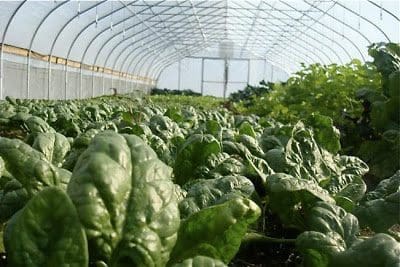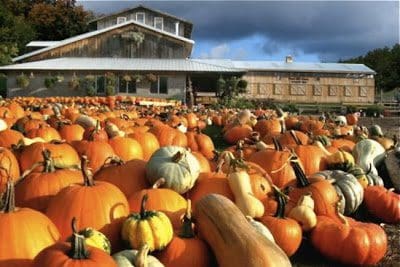Pond Hill Farm is making a difference in the way children think about food by having an interactive experience. Last summer, I had an opportunity on my YouTube show, Cooking with Chef Mary, to see why Pond Hill Farm is an amazing asset to the community of Harbor Springs, Mich., and can be an example to all of us. It isn’t just for their fresh produce and their organic meats, it’s how they educate children about the farm and where food comes from in hopes to lessen the gap from the farm to the table.
Adults and children alike seem to be more and more removed from where food comes from. At the grocery stores we buy fruits and vegetables in cans, meats and poultry that are plastic wrapped and milk from a carton. Aside from a possible picture and a name on the label there’s no indication of the source, which makes us less and less removed from the plant and animal it came from.
At Pond Hill Farm, they bring the children into the fields and give them an opportunity to connect with the food. They provide a chance to plant food, watch it grow and take it home to cook and eat it. This simple experience can positively change the way children perceive their food.
Learn from the best.
According to the Center for Disease Control, more than one third of U.S. adults—more than 72 million people—and 16 percent of U.S. children are obese. Since 1980, obesity rates for adults have doubled and rates for children have tripled. With these statistics rising at such an alarming rate, something has to be done.
At Pond Hill Farm in Harbor Springs, Mich., something is being done.
“We thought we would start children thinking about healthy eating choices while they are still young,” Jimmy Spencer said, owner of Pond Hill. “Hopefully, they will continue to think about what they are eating and grow up having a well-balanced diet.”
Spencer is talking about their Farm Education Program, which has been operating since 2000. Local school children, cub scouts and other groups come to the farm to learn where their food comes from, how it’s grown and how eating a well-balanced diet keeps their bodies healthy.
“I start the program by asking the children, ‘has anyone eaten plants today?’ They usually all say, ‘NO!’ Then I explain that almost everything we eat is plant-based and that the cereal they ate that morning for breakfast came from a farm growing wheat,” Spencer said. “Most of the children think it simply comes from the grocery store.”
Spencer goes on to explain that putting bad fuel into a car can make it run rough and even stop working and compares that to the human body.
At Pond Hill Farm, the kids are not only learning about healthy eating, they’re also getting hands-on experience. During the spring Farm Education Programs, each child has the opportunity to plant their own vegetable plant seedling.
“What we are hoping for is that each child brings home their plant and eventually harvests and eats what they produce,” Spencer said. “Kids are more likely to eat something that they have grown themselves and take pride in.”
In addition to learning about their food and where it comes from, the children enjoy a total farm experience by taking a hayride around the farm, feeding the fish at the Trout Pond, feeding the farm animals and shooting a giant slingshot called the Squash Rocket out into the field.
The farm also offers opportunities for families to plant a plot in the Community Garden or to be a part of their Community Supported Agriculture program.
“We continually strive to promote eating locally grown pesticide and herbicide free produce,” Spencer said. “The Community Garden allows those in the neighborhood who don’t have the land to grow a garden, the ability to produce their own food.”
Jimmy’s wife Marci, and mother Sharon, also share his passion for farming. Sharon does all of the canning, soap making and accounting, and Marci is responsible for public relations, marketing and taking care of their two small children, Emma and JJ.
Pond Hill Farm is also home to a non-profit, Farming for our Future at Pond Hill (FFOF), which is focused on helping people improve their lives and communities through organic gardening and farm-based education. Some of the programs offered by FFOF include farm camps, a community garden in Petoskey and Farm Tokens for Education. The farm tokens project works just like Box Tops for Education but instead of collecting box tops from cereal; people collect wooden tokens when they purchase a locally-produced food. Participating farmers and grocers then pay the school for each token turned in by students.
Hopefully, with organizations like Pond Hill Farm, Farming for our Future and others who dedicate their time to promoting healthy eating, the childhood obesity rate will begin to decrease.
“We can only hope that kids will realize that eating a carrot they have grown instead of a bag of chips will help their bodies function better now and into the future,” Spencer said.
To find out more about Pond Hill Farm please go to www.pondhillfarm.com.

